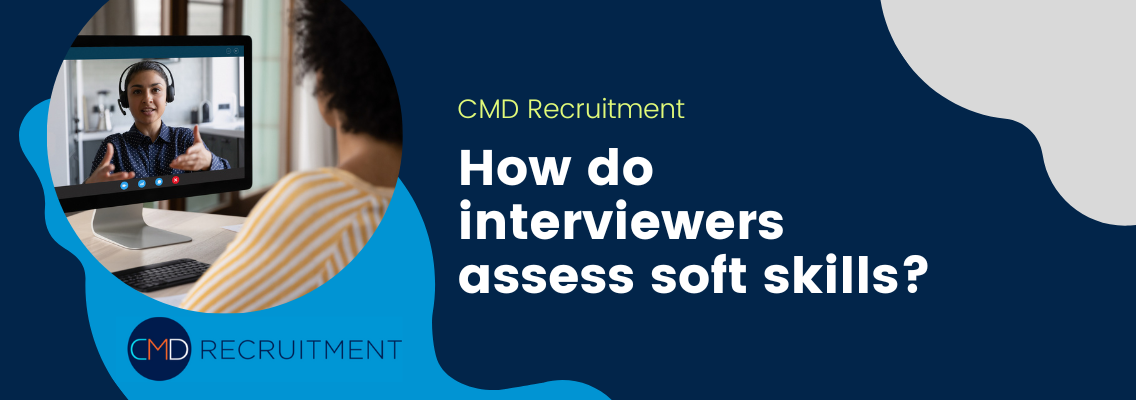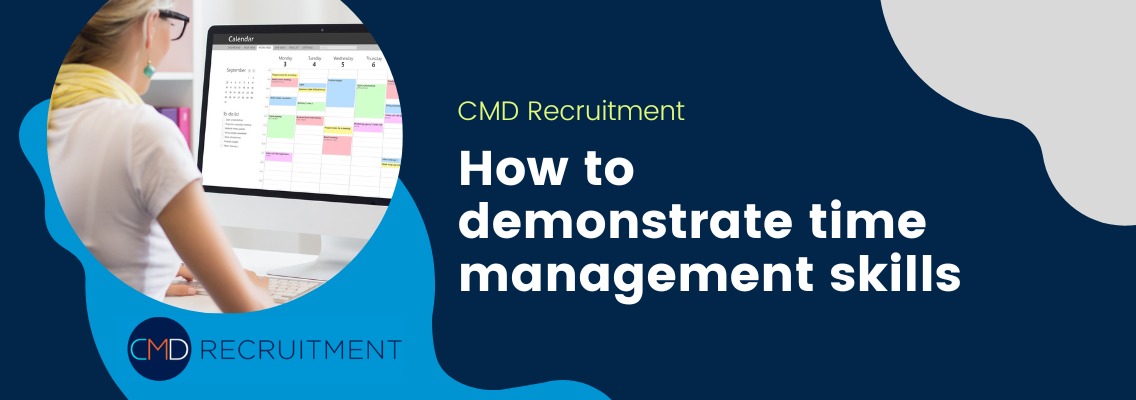Important notice - We are aware of a scam where people are impersonating CMD Recruitment to offer jobs via WhatsApp & Telegram. This is a scam, CMD Recruitment will never contact new candidates via these methods. Any legitmate offer from CMD Recruitment would be made via a telephone call.

December 20, 2022
One of the best ways to feel confident in an interview is to be prepared. This means knowing your CV inside out, and also having a good grasp of the job description. You can also practise answering common interview questions to help you to feel more confident delivering your answers.
While many job interview questions will focus on technical skills and explore how you respond to certain task-based situations, interviewers will also assess your soft skills. Knowing how to answer these questions can make all the difference when it comes to winning a job.
Soft skills are intangible abilities, such as problem-solving, communication or leadership. Employers value soft skills because they help employees to collaborate effectively and get things done in any role. Examples of soft skills include:
Whatever role you are applying for, there is a good chance that these skills will be relevant. When practising your answers, make sure you consider how to reference these soft skills.

The following are some examples of soft skills interview questions that you may be asked. Answering these questions can really help to demonstrate your suitability for the role:
These are just some of the many soft skills questions that could come up in an interview. Being prepared with clear and concise answers to these questions will help to demonstrate your communication abilities and show employers how you would fit into their team.
It’s also important to remember that employers will be assessing these skills at all times, in your body language and the way to deliver answers to other questions. Read on to learn how to show you have these skills throughout your interview, even if you aren’t asked directly.
When you prepare your answers to common interview questions, you can kill two birds with one stone by emphasising your soft skills too. Even when you’re not asked directly about them, employers will pick up on your ability to work with others and show these qualities in the way you interact.
Communication can be verbal and non-verbal, and this will be assessed from the moment you step foot in the room. Consider your body language and use confident hand gestures when appropriate. Speak clearly and don’t be afraid to showcase your personality by making eye contact and smiling.
Being organised is a key soft skill in any role, so it pays to arrive on time, prepared with all the documents you need. When answering questions about organisational skills, let the interviewer know the systems and methods you use to stay on top of your tasks.

You can’t claim to be excellent at time management if you are late for your interview, so make sure you don’t fall at the first hurdle. When it comes to answering interview questions about your work methods, discuss the techniques you use to stay on track and how you prioritise tasks.
When asked about your team-working abilities, be sure to provide examples of successful collaborations you have been part of in previous roles. Highlight any challenges that had to be overcome and talk through how you worked together as a team to get results.
You can also mention the role that you feel most comfortable adopting when working as part of a team. Some people like to lead, some people like to follow, and some people are there to provide conflict resolution and keep things on track.
Employers will often ask questions like ‘How do you handle change?’ when assessing a candidate’s adaptability. Being able to show that you can roll with the punches rather than becoming overwhelmed is essential for any role. Think of examples from previous roles which demonstrate how you adapted to difficult situations and rose to the challenge.
When faced with a problem, it’s natural to feel overwhelmed. However, interviewers are interested in how you deal with these challenges and come up with solutions. When discussing your problem-solving abilities, explain the techniques that you use when faced with unexpected issues and provide examples of successes you have had in the past.

You might not be asked a direct question about leadership, but you can demonstrate your aptitude to lead when answering other questions. Any time you are asked to talk about working as part of a team or motivating those around you, you can use this as an opportunity to show how you have risen to the challenge in the past. Be specific about your leadership style and how you motivate those around you.
Although not essential for every role, if it’s relevant to the job you are applying for, make sure you mention your creativity when answering interview questions. Creativity doesn’t have to mean things like arts and crafts, it can be a way you approach your work that allows you to think outside the box.
Talk through any ideas you have had that have been successfully implemented in the past and talk about any projects you have worked on. Also, be sure to mention any awards or recognition your creativity has received
It’s important to remember that soft skills are assessed throughout the interview process, so it pays to be mindful of this during your preparation. Take some time to reflect on what these skills mean to you and how you can show them in an interview.
It might not feel like it at the time, but demonstrating these qualities could make all the difference when it comes to getting the job.
Be sure to think of examples from previous roles which demonstrate how you have put these skills into action and don’t be afraid to showcase your personality by making eye contact and smiling.
Back to Blog